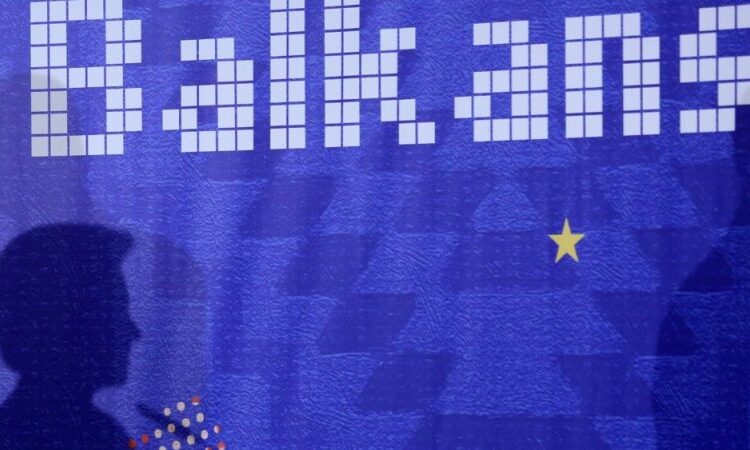Council, Parliament agrees on Western Balkan funds, conditions on security policy alignment – Euractiv

The European Parliament and Council on Thursday reached a deal on a new €6 billion facility to support Western Balkan countries that are on the path to European Union membership, with provisions including the need to align with EU foreign and security policy, likely to be a stumbling block for some.
Commission President Ursula von der Leyen formally announced the Reform and Growth Facility for the Western Balkans in autumn 2023 at the EU-Western Balkans summit in Tirana, Albania.
On Thursday, negotiators from the Parliament and Council reached a provisional agreement on the deal. The funds will be used for various matters, including facilitating economic convergence, strengthening the rule of law, and increasing transparency while acting as a carrot in the somewhat stagnant enlargement process.
“It is a political encouragement for the accession process while speeding up real structural and institutional reforms, including alignment with EU’s Common Foreign & Security and Visa policies…this is one more important instrument that will bring these countries closer to the EU,@ said Karlo Ressler, co-rapporteur for the Committee on Budgets.
The agreement reached by the negotiators will see the commitment to the integration of the Western Balkan countries, Albania, Serbia, Montenegro, North Macedonia, and Bosnia and Herzegovina, underpinned by the “fundamentals first” approach. This approach links the rule of law, fighting corruption, and fundamental rights with two other areas: economic governance and the strengthening of democratic institutions and public administration reform.
MEPs also strengthened the need for alignment with Common Foreign and Security Policy.
In terms of transparency, MEPs insisted on regular high-level dialogue between states and the Commission, and increased monitoring and scrutiny from Parliament, ensuring progress and funding alignts with EU goals.
Furthermore, countries must publish information on recipients of large chunks of EU funds on a public webpage. Measures will also be introduced to avoid the duplication of assistance or double funding under the Pre-accession Assistance (IPA).
The funds will also aim to drive socio-economic reforms, advance growth, and increase EU alignment. A framework will be established that will tie financial support to clear progress indicators. This will include a scoreboard to track and publicly display states’ progress and reform agendas, including documents, payment conditions, and fund recipients.
“I welcome that this parliamentary mandate has strengthened enlargement and brought it back on the agenda, and this agreement confirms it. Our proposals in the agreement will increase funding for Western Balkans by emphasising the importance of the rule of law, transparency, and reforms to bring these countries, our partners, closer to the EU,” said Tonino Picula, co-rapporteur for the Committee on Foreign Affairs.
He added that states must fully align with foreign and security policy as a “key objective”.
This is “very important for the Parliament and will give a clear sign to those countries in the region that still need to fulfil this criteria”.
This was a clear nod to Serbia, which has refused to align with EU policy on Russia, instead moving closer to Moscow through visits, agreements, and the development of trade and cooperation.
Serbia and Montenegro lead the way in terms of the number of open accession chapters, but little progress has been made in closing any in years. Albania opened negotiations in 2022, while North Macedonia is still unable to formally begin due to conditions imposed by Bulgaria over changes to the constitution.
Bosnia and Herzegovina got the nod to start accession talks in March, while Kosovo, which applied for membership in December 2022, has yet to see any progress, likely due to five EU member states not recognising its independence.
Many in the region, including leaders such as Prime Minister Edi Rama of Albania, have called out the EU for holding up the process, insisting they are doing their bit. They have reiterated the strategic, security, and geopolitical need to move forward with enlargement, particularly since the Russian invasion of Ukraine in 2022.
The agreed provisional text still needs to be approved by the full house and the Council of the EU.







